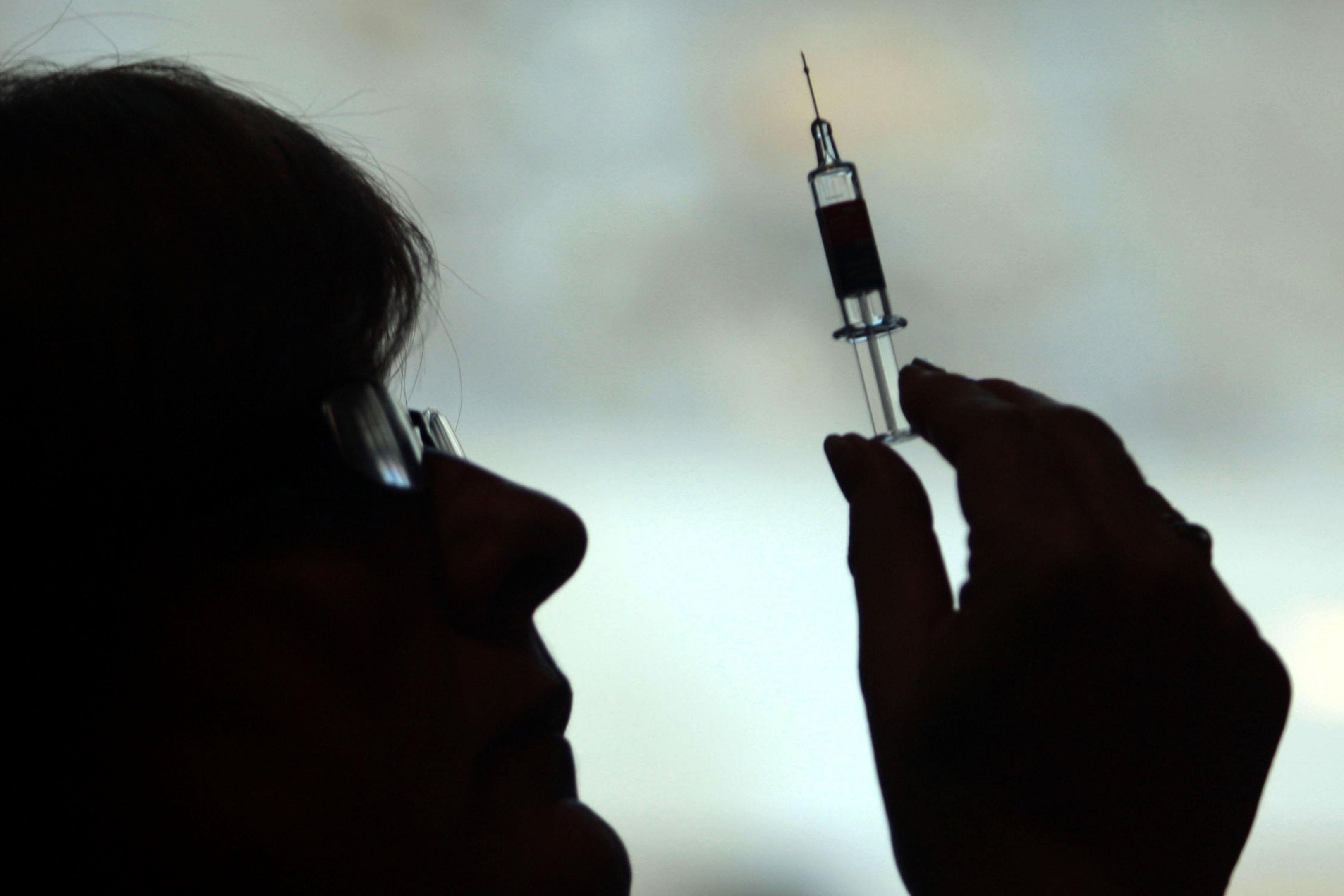UK ‘on the brink of defeating’ meningitis C
There were just three cases of meningococcal group C – the infection which can lead to meningitis C – last year, the UK Health Security Agency said.

Your support helps us to tell the story
From reproductive rights to climate change to Big Tech, The Independent is on the ground when the story is developing. Whether it's investigating the financials of Elon Musk's pro-Trump PAC or producing our latest documentary, 'The A Word', which shines a light on the American women fighting for reproductive rights, we know how important it is to parse out the facts from the messaging.
At such a critical moment in US history, we need reporters on the ground. Your donation allows us to keep sending journalists to speak to both sides of the story.
The Independent is trusted by Americans across the entire political spectrum. And unlike many other quality news outlets, we choose not to lock Americans out of our reporting and analysis with paywalls. We believe quality journalism should be available to everyone, paid for by those who can afford it.
Your support makes all the difference.The UK is close to eradicating a potentially fatal bacterial disease that can cause meningitis and septicaemia, new figures suggest.
There were just three cases of meningococcal group C – the infection which can lead to meningitis C – last year, the UK Health Security Agency (UKHSA) said.
Cases of the illness are down by 99% since a routine jab was introduced on the NHS in 1999.
Thanks to the power of vaccines, we are now on the brink of defeating meningococcal C disease in the UK, but the fight against these deadly diseases that cause meningitis and septicaemia continues
However, officials have raised concerns about meningococcal group B – which can cause meningitis B – due to the continued decline in the uptake of childhood vaccinations.
New data shows there were 341 cases of meningococcal disease, with the bacteria that causes meningitis B responsible for 88% (301) of cases.
Meningococcal bacteria is a serious and potentially deadly infection that can cause meningitis, an infection in the membranes that cover the brain and spinal cord.
Symptoms include headaches, vomiting, stiffness in the neck, fever and a sensitivity to light.
The bacteria can also cause septicaemia, or blood poisoning, as well as pneumonia.
The Hib/MenC vaccine is given to babies at one year old and helps prevent haemophilus influenzae type b (Hib) and meningitis C.
The MenB vaccine is offered to babies at eight weeks, 16 weeks and one year old.
Too many children are still not fully vaccinated and ensuring their protection is as important as ever - this disease can strike quickly and leave you with life-changing health complications if not treated promptly
There is also the MenACWY vaccine for teenagers in Year 9 and Year 10, or aged 13 to 14.
Dr Shamez Ladhani, a consultant epidemiologist at the UKHSA, said: “Thanks to the power of vaccines, we are now on the brink of defeating meningococcal C disease in the UK, but the fight against these deadly diseases that cause meningitis and septicaemia continues with meningococcal B still causing most of the 341 cases last year.
“That’s why it is so important that parents protect their children by ensuring they get their infant MenB vaccinations and teenagers get their MenACWY in school.”
Last year, some 91% of children in England received two doses of the MenB vaccine, a decrease of 0.5% from the previous 12 months.
MenB booster coverage was 87.6%, a fall of 0.4%.
Rates among youngsters routinely offered the MenACWY jab in the 2022/23 school year was 68.6% in Year 9 and 73.4% by Year 10.
Dr Ladhani added: “All teenagers remain eligible for the MenACWY jab until their 25th birthday.
This reinforces the need for continued vigilance, additional research to inform vaccine strategies and support for all families affected by the disease
“If they have missed out, it is vital they get vaccinated, particularly if they are going on to university or colleges where their risk of severe disease, and sadly even death, from meningitis or septicaemia is much higher.”
Steve Russell, NHS national director for vaccinations and screening, said: “It is fantastic to see the positive impact that continued uptake of meningitis vaccinations has led to over the past decade – they remain our best defence against the highly dangerous disease.
“However too many children are still not fully vaccinated and ensuring their protection is as important as ever – this disease can strike quickly and leave you with life-changing health complications if not treated promptly.”
Other groups of meningococcal disease, including A, W and Y, remain very low, the UKHSA said.
Dr Tom Nutt, chief executive of the charity Meningitis Now, called for “continued vigilance” against meningitis B.
“MenB remains the most prevalent strain of meningococcal disease,” he said.
“This reinforces the need for continued vigilance, additional research to inform vaccine strategies and support for all families affected by the disease.”